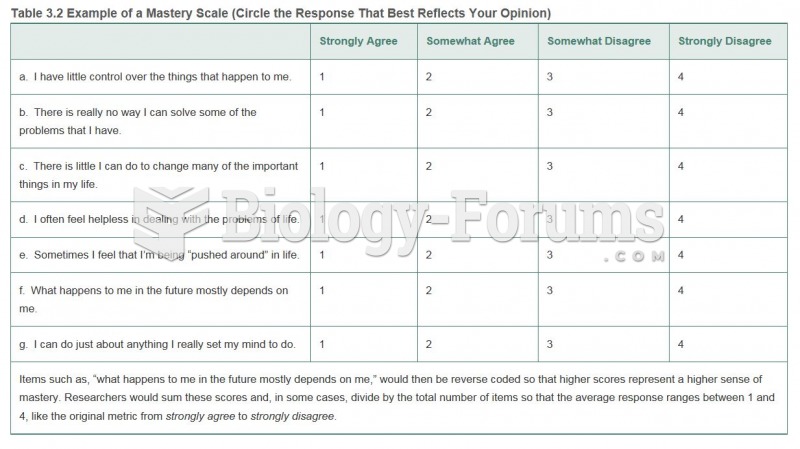|
|
|
Patients who cannot swallow may receive nutrition via a parenteral route—usually, a catheter is inserted through the chest into a large vein going into the heart.
There are more sensory neurons in the tongue than in any other part of the body.
Egg cells are about the size of a grain of sand. They are formed inside of a female's ovaries before she is even born.
After a vasectomy, it takes about 12 ejaculations to clear out sperm that were already beyond the blocked area.
Over time, chronic hepatitis B virus and hepatitis C virus infections can progress to advanced liver disease, liver failure, and hepatocellular carcinoma. Unlike other forms, more than 80% of hepatitis C infections become chronic and lead to liver disease. When combined with hepatitis B, hepatitis C now accounts for 75% percent of all cases of liver disease around the world. Liver failure caused by hepatitis C is now leading cause of liver transplants in the United States.







